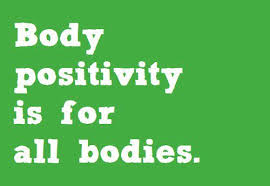I am disappointed in Mizzou. I love this school with all my heart, and I’m severely disappointed in it.
In the past 5 days, I have received three Clery Releases from Mizzou’s Police Department about women being assaulted on campus. In one, two girls were sexually assaulted, groped, by a group of around 6 men. Then a second release came out saying another group of women was assaulted by a similar group of men. In the third, a woman was assaulted, pushed against a vehicle and luckily managed to get away from the male perpetrator.
I am absolutely appalled by this. Our students are no longer surprised by these releases–they are used to them.
Also, we only receive Clery Releases when these events are reported. Imagine the sheer number of assaults that aren’t reported because students are unsure of what constitutes consent, or it was an assault by an acquaintance (which is very common), or the victim doesn’t believe any action will be taken (which is a valid concern).
In my opinion, these assaults are a result of not only the culture of violence against women in our society, but also the culture on this campus. We are a very progressive campus in many areas, but we are really not doing enough with regards to fighting rape culture.
We have a lot of good things going–the Green Dot Program and the It’s On Us Campaign, for example. But these programs are highly focused on bystander intervention. It is my belief that though this is wonderful and can be effective, Mizzou should also do more to focus on the root of the problem.
So, what do I think should be done differently?
Mandatory coercion and consent workshops. Every student at Mizzou should know exactly what constitutes consent and how to recognize/avoid coercion. Every single student. I think this should be taught at Summer Welcome and again within dorms, as well as to Greek organizations and other social organizations.
Don’t be afraid of a black eye. Yeah, reporting will increase when we implement new tactics. That may matter to an administration, but students’ lives are more important than our image. Mizzou can be a leader in this fight, showing that we value victims over a temporary black eye on the administration.
We also desperately need reporting to happen, and we need it to make a difference.
Hold people and organizations accountable. We need real consequences for people. How can someone be expelled for cheating on an exam and barely punished for raping another human being? Students should be assured that they won’t be victim-blamed, and we have to hold perpetrators accountable–no matter their standing with the school. Athlete, fraternity member, student leader, I don’t care. This leads me to my next point:
Combat the culture of toxic masculinity. We must make it unacceptable on this campus to view women as accomplishments, prizes, objects, etc. Men must stand up to their male friends and say, hey that’s really not cool to talk about that girl that way. Since women are punished for saying “no” to men, we have to create a culture in which women’s choices and bodily autonomy is respected wholeheartedly.
We need men to stop being afraid and speak up, stand up to their friends when we aren’t around to do it and when we are afraid of the potential consequences. Make sure they know that their male peers aren’t okay with this. Although it’d be great if women crying out, “hey, stop doing this!” worked, the reality is that many times their opinions aren’t listened to or respected, so we need your help. This is closely related to bystander intervention, but it shouldn’t even get to that point–scold your friend for catcalling at a woman. Hold him accountable when he objectifies a woman. Change the way he perceives women so that a Red Dot doesn’t have to happen.
Oh, and stop saying “Not ALL guys are like this!” Instead, recognize the problem in society’s idea of what constitutes masculinity and help us fix this.
To conclude, I think a lot can be done on our campus to prevent assault, and I wholeheartedly believe that what we’re doing isn’t enough. I felt this post was completely necessary for me to get my feelings out there. I welcome constructive criticism or suggestions, or any comments that anyone may have.

